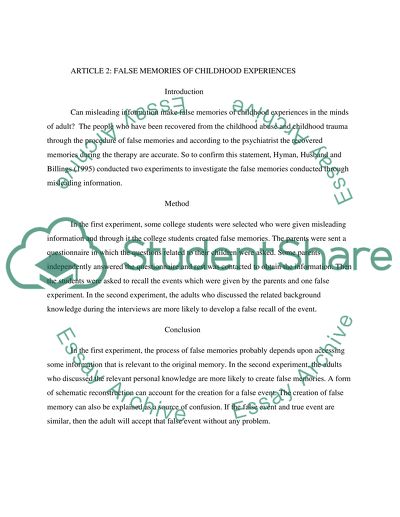Cite this document
(“False Memories Research Paper Example | Topics and Well Written Essays - 1000 words”, n.d.)
Retrieved from https://studentshare.org/psychology/1617348-false-memories
Retrieved from https://studentshare.org/psychology/1617348-false-memories
(False Memories Research Paper Example | Topics and Well Written Essays - 1000 Words)
https://studentshare.org/psychology/1617348-false-memories.
https://studentshare.org/psychology/1617348-false-memories.
“False Memories Research Paper Example | Topics and Well Written Essays - 1000 Words”, n.d. https://studentshare.org/psychology/1617348-false-memories.


